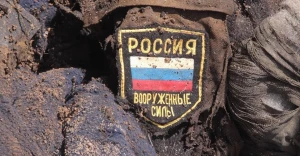
If not NATO, what are alternatives for Ukraine security guarantees?
One of the key issues in the peace talks will be Ukraine’s NATO membership
I’m glad that many politicians are finally being honest about the fact that this decision has never had solid backing from partner countries. The chances were always slim, largely due to the positions of individual nations — Turkey, Germany, Hungary, and, depending on elections, others. But more importantly, NATO has never been an effective defense mechanism.
In a world of hybrid threats, the organization has lost its way, with joint exercises being the most it has managed. Yes, Article 5 is a critical defense measure, but it only works with unanimous agreement. Putin just needs one ally to stall NATO, and today, he has more than one. That’s why its effectiveness has been in doubt since the Soviet collapse.
For Ukraine, the real issue in ending the war is security guarantees, ensuring this doesn’t happen again. NATO may be a weak guarantee, but it’s still a guarantee and a deterrent.
So the real question now is: If not NATO, what other security guarantees exist?
The most promising alternative to NATO could be a fully developed EU security and defense policy — essentially, a true European army. While such a policy technically exists today, it remains underdeveloped. Its focus is on funding defense projects, crisis response, and peacekeeping operations. However, it lacks a dedicated governing body, and there is no real integration of military forces into a single structure.
The weak defense policy is largely because most (though not all) EU members are in NATO, making duplication unnecessary. Simply put, Trump isn’t wrong when he accuses Europe of relying on U.S. defense spending. Now that he’s back, the push for a real European defense policy may gain momentum.
How does this impact us? Putin has never been particularly concerned about Ukraine joining the EU. Unlike NATO membership, this issue is relatively straightforward. If Ukraine joins the EU, it participates in all its policies, including defense. That means the Ukrainian Armed Forces could become part of the so-called "European army." If the common defense policy includes collective security commitments, Ukraine would gain protection under this framework.
As an EU member, Ukraine could also host military contingents from other member states, collaborate on joint production, and more.
This has serious implications, especially considering Trump’s isolationist stance, not to mention his talk about buying Greenland. European leaders need to finally show some backbone and stop clinging to the illusion of U.S. protection. As Washington scales back its military role in Europe, Ukraine's strategic importance will only grow. Ukraine's armed forces could serve as the backbone of this new European defense policy, and its industry could supply its military needs.
In the end, Putin might get what he wants — Ukraine staying out of NATO — but that wouldn’t leave Ukraine defenseless. It’d secure protection within the EU rather than NATO. Trump would achieve his goal of reducing U.S. involvement in European security. And as for nuclear deterrence, France already has nuclear weapons within the EU. Plus, given the UK’s position, it wouldn’t be surprising if Britain aligned itself with such a defense policy, even outside the EU. Meanwhile, the U.S. would still play a role in European security, even with its reduced presence in NATO.
About the author. Viktor Andrusiv, political and public figure, analyst and publicist
The editorial staff does not always share the opinions expressed by the blog authors.
- News












































